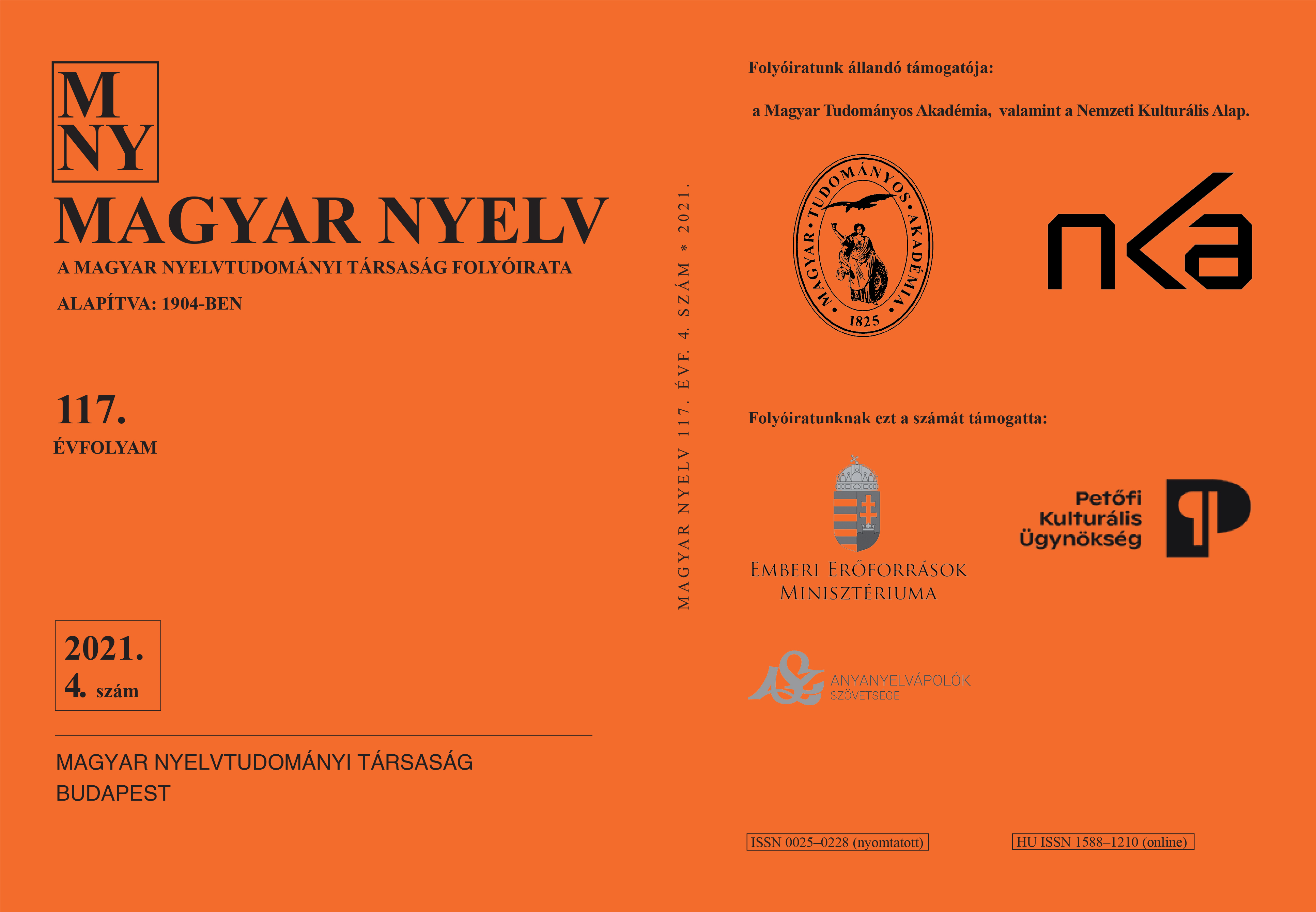Hungarian onomastics: Directions and perspectives.
DOI:
https://doi.org/10.18349/MagyarNyelv.2021.4.385Keywords:
history of science, Hungarian onomastics in the 21st century, forums of onomastics, anthroponym studies, toponym studies, digital onomastics databasesAbstract
The paper provides an overview of 21st-century Hungarian onomastics that represents the most recent era in the history of the field. This is confirmed by the growing number of scholars working in this area, the transformation of research profiles, as well as the significant expansion of publication forums and the increasing internationalization of Hungarian onomastics. Research cooperation has come to the fore, research groups have been founded, and long-term research programs have been outlined. At the same time, the disciplinary position of onomastics has also changed: research is more abundant in the related areas surrounding the discipline perceived as an independent field of scholarship, primarily in terms of socio-onomastics and the traditional perspectives of historical linguistics and historical dialectology. The paper provides a detailed overview of the most recent findings in two key areas of onomastics, research on anthroponyms and on toponyms. The opportunities for studying anthroponyms have expanded with the publication of sources and the application of new theoretical approaches. Research activities focused on the personal name system of the 14th to 18th centuries. As opposed to this, toponym studies focused more on the era prior to the 14th century, with scholars publishing a series of monographs on remnants and onomastic phenomena, also creating an important toponym synthesis. Digital databases indicate the future directions of research in both areas and their incorporation within a uniform framework may best guarantee the continued development of onomastics.
Downloads
Published
Issue
Section
License
Magyar Nyelv is a Diamond Open Access periodical. Documents can be freely downloaded and duplicated in an electronic format, and can be used unchanged and with due reference to the original source. Such use must not serve commercial purposes. In the case of any form of dissemination and use, Hungarian Copyright Act LXXVI/1999 and related laws are to be observed. The electronic version of the journal is subject to the regulations of CC BY-NC-ND (Creative Commons – Attribution-NonCommercial-NoDerivatives).
The journal permits its authors, at no cost and without any temporal limitation, to make pre-print copies of their manuscripts publicly available via email or in their own homepage or that of their institution, or in either closed or free-for-all repositories of their institutions/universities, or other non-profit websites, in the form accepted by the journal editor for publication and even containing amendments on the basis of reviewers’ comments. When the authors publicize their papers in this manner, they have to warn their readers that the manuscript at hand is not the final published version of the work. Once the paper has been published in a printed or online form, the authors are allowed (and advised) to use that (post-print) version for the above purposes. In that case, they have to indicate the exact location and other data of the journal publication. The authors retain the copyright of their papers; however, in the case of an occasional secondary publication, the bibliographical data of the first publication have to be included.



